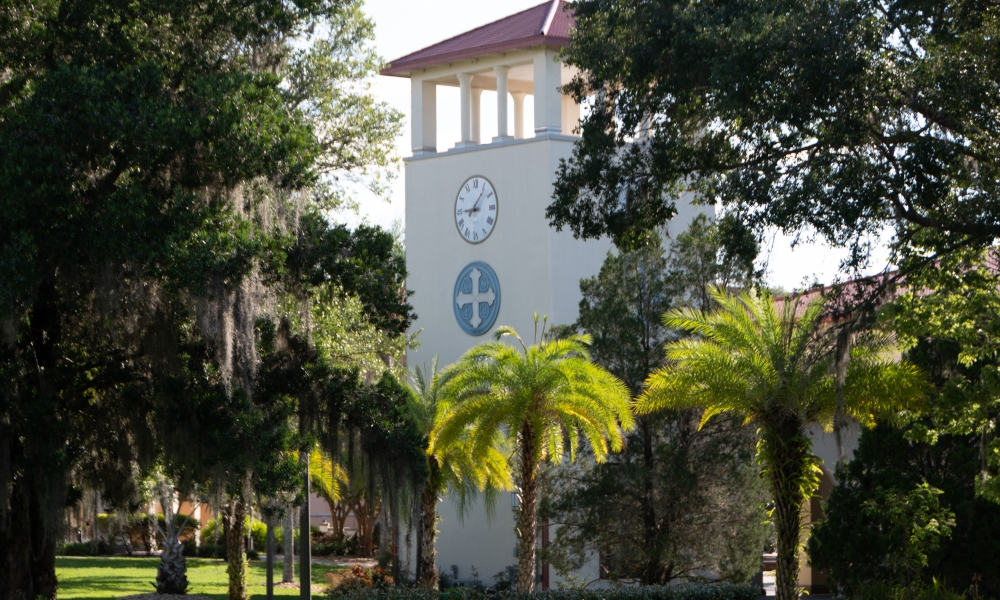
Saint Leo University Faculty Member Highlights Ethical Leadership This Global Ethics Day
Saint Leo University’s Dr. Pamela Chandler Lee examines the critical role of values and ethics in the global marketplace.
Saint Leo University’s Dr. Pamela Chandler Lee examines the critical role of values and ethics in the global marketplace.
Getting your Trinity Audio player ready...October 15 is recognized as Global Ethics Day, an opportunity to reflect on ethical decision-making.
October 15 is recognized as Global Ethics Day, an opportunity to reflect on ethical decision-making.
Founded on Catholic Benedictine principles, Saint Leo University aims to develop morally responsible leaders by ensuring that ethics is a component of all courses and activities. Dr. Pamela Chandler Lee, director of the MBA program and professor of management at Saint Leo’s Tapia College of Business, shares her insights on how ethical principles shape modern business practices and guide the next generation of leaders:
Implementing Core Values in Business Education to Inspire Ethical Behavior
The world is enduring a period of almost unprecedented change, innovation, disruption, and intense competition in nearly every industry. Succeeding in this environment not only requires a sophisticated knowledge of business, but it also requires principled leaders who are able to navigate the complexities of the modern economy with vision, integrity, responsibility, and a commitment to excellence.
The widespread consequences of ethical lapses in governments and corporations across the globe are evidence that these leaders must be groomed and prepared to meet the need. Thus, the role of graduate business programs extends beyond offering advanced courses in finance, marketing, or economics.
Business programs must also serve as the platform for developing ethical leaders who can balance the expectations of shareholders with the needs of employees, customers, and communities. Importantly, a mere mention of values and ethics as afterthoughts in one or two business courses is insufficient to meet this objective. These principles must be embedded in the curriculum, taught, modeled, and demonstrated as students earn their degrees.
Core Values & Organizational Performance
Researchers have consistently demonstrated the relationship between core values and organizational performance. In their groundbreaking best seller, Built to Last: Successful Habits of Visionary Companies, famed management scholars Jim Collins and Jerry Porras highlighted core values as a fundamental element of high performing companies. Moreover, they concluded that organizations which sustain a “core ideology” — core values and a sense of purpose beyond making a profit — encourage ethical behavior, even when no one is watching. Core values create the context in which employees think, act, and make decisions. The more formal and the more clearly articulated they are, the more likely employees will use them to guide their behaviors.
Nevertheless, corporations with core values plastered on every wall have experienced deleterious ethical failures. These are bound to occur when the organization’s stated values are inconsistent with its leaders’ actual values and behaviors. When there is a gap between what leaders say they value and what they show they value, employees are likely to become discontented, disgruntled, and disengaged. When leaders embrace a core ideology, they must be “all in.”
As a result, graduate students should not only learn about the theoretical correlations between core values and organizational performance, but they must also be able to demonstrate a commitment to values and ethical behavior in business before they graduate. Business programs can establish this commitment by cultivating habits of respect, compassion, accountability, and principled decision-making among their students.
Core Values in Business Education
Saint Leo University is one of the oldest and largest Catholic universities in the country. Our core values are rooted in a 1,500-year-old Benedictine tradition. With a mission to serve the community, our core values represent the foundational principles on which the university’s business goals and objectives as well as every course in the MBA curriculum are established, measured, and assessed. Saint Leo’s core values are personal development, responsible stewardship, integrity, community, excellence, and respect.
A strong MBA program, like Saint Leo’s, builds on these values while also emphasizing responsibility, innovation, and accountability. The goal of the program is to develop graduates with the advanced knowledge, leadership ability, and decision-making skills to manage complex business interactions and solve real-world challenges in a global marketplace. Our program outcomes require that students are equipped to execute ethical business decisions in an economically responsible manner. We are committed to providing them with the tools and resources they need to meet this objective.
Instructional Strategies
Through simulations, internships, and service learning opportunities, MBA students can be prepared to demonstrate strong, ethical business practices. By participating in simulations in which they are confronted with real-world challenges, they apply critical thinking and ethical reasoning. Significantly, simulations require that students respond to the results and consequences of their decisions.
MBA students also earn academic credit through internships in which they gain real-world experience and make significant contributions to organizations across the country. Saint Leo’s MBA interns work in fields such as accounting, logistics, cybersecurity, information technology, project management, and human resources management. Internships allow students to put their learning into practice.
Opportunities for service learning are incorporated in Saint Leo’s capstone course and the marketing course as students engage with organizations in the community. Service learning projects are particularly impactful for graduate students, who tend to be older and more experienced than undergraduates. These hands-on projects allow students to connect their learning with their living.
For example, for the MBA capstone, students work in teams to develop strategic management plans for organizations in their communities. They develop the plans for small businesses and nonprofits who have a need for consulting services but may not have the means to afford it. Clients have represented organizations such as an advertising agency, a popcorn company, a brewery, and nonprofits supporting causes such as health care, children’s literacy, and disability services. In the true spirit of service learning, these projects benefit the students, the organizations, and their communities.
By facilitating learning in the classroom and beyond, our MBA program is designed to ensure our graduates understand that ethics and values in business are not optional choices, but central elements of responsible leadership. As organizations face increasing pressure to outperform and outlast the competition, leaders who can skillfully integrate principles and profitability are uniquely prepared and positioned to build enduring organizations that serve their constituents and their society.
About Dr. Pamela Lee
Dr. Pamela Chandler Lee is the director of the MBA program and a professor of management at Saint Leo’s Tapia College of Business, teaching in the MBA and DBA programs. A U.S. Navy veteran, she is a member of several leadership and management organizations, such as the International Leadership Association, The Christian Business Faculty Association, and the Southern Management Association.
About Saint Leo University
Saint Leo University is a Catholic Benedictine university dedicated to helping learners of all backgrounds and ages gain the competence and courage to be more. Offering more than 55 degree programs to more than 13,000 students each year, the nonprofit university is known for providing a values-based education in the liberal arts tradition and a community of belonging for those who seek a greater purpose in life. Saint Leo is regionally accredited and offers a campus in the Tampa Bay area of Florida, regional education centers, and several online programs. The university is home to more than 106,000 alumni. Learn more at saintleo.edu.



